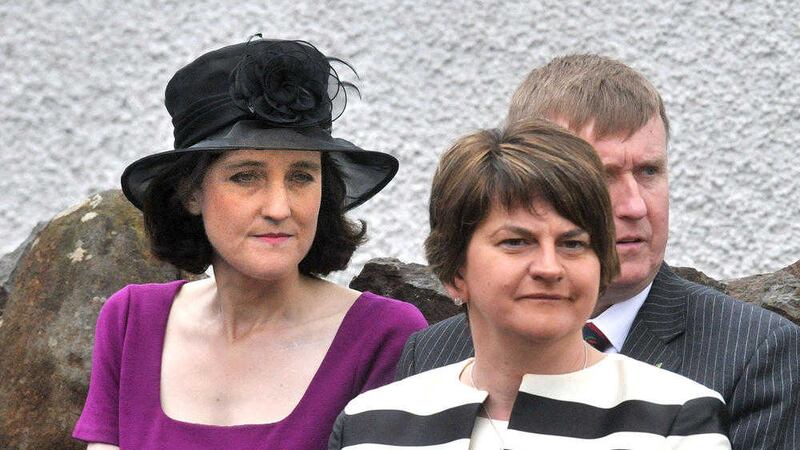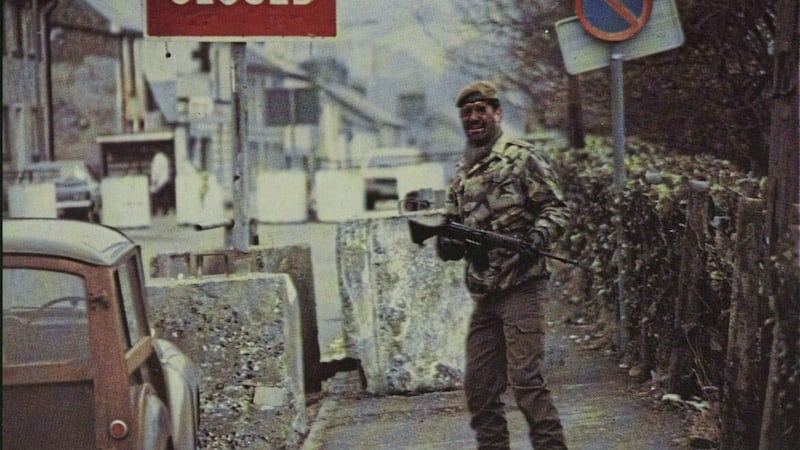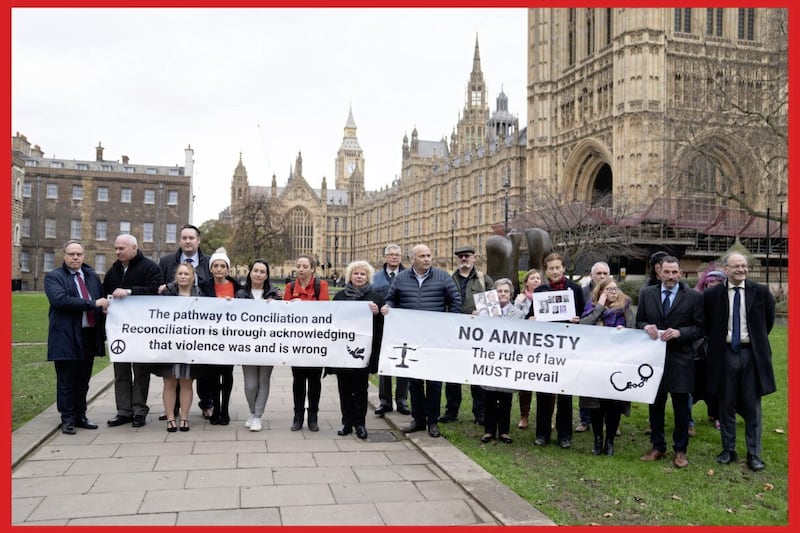PROGRESS to resolve logjams hindering new mechanisms to deal with the toxic legacy of Northern Ireland's Troubles could be achieved within weeks, Theresa Villiers has said.
The Northern Ireland Secretary denied the impasse had been allowed to drift and said intensive talks involving the region's political leaders would take place through July.
A suite of measures designed to deliver justice or truth recovery are trapped in the starting blocks due to political stalemate.
The 2014 Stormont House Agreement saw consensus reached on the vast majority of issues, but as the mechanisms are part of an inter-linked package, none will be implemented until the final sticking points are ironed out.
The ongoing delay is a source of concern and anger for many within the victims sector.
The main obstacle centres on a dispute between the government and Sinn Féin over the extent of official documentation that will be disclosed to families of the bereaved.
"We have made a tremendous amount of progress," insisted Ms Villiers.
"We are closer than ever before to reaching a consensus on the most effective way to address the legacy of the past through setting up the Stormont House bodies.
"We are continuing with some intensive work with the Executive over the next few weeks to see if we can close the remaining gaps.
"I will continue to work hard to get them resolved because I think the current systems are just not delivering good enough outcomes for victims and survivors."
Among the initiatives in cold storage are a new independent unit to investigate unsolved murders; a truth recovery commission; and academic projects to document the history of the Troubles.
The government is providing £150 million to fund the initiatives.
The government has pledged to disclose all files to the new Historical Investigations Unit (HIU), but has insisted it must retain the right to prevent onward dissemination of some papers to relatives on the grounds of national security.
A row over how families could challenge decisions to withhold disclosure remains outstanding, with agreement yet to be reached on the government's proposal for appeals to go before a High Court judge.
Sinn Féin, which wants an international panel of judges to adjudicate on appeals, has accused the government of using national security as a means to suppress the truth about killings with state involvement.
"We are certainly working to do all we can to see progress made over the course of the next few weeks," said Ms Villiers.
"These are hugely sensitive and difficult issues. It was never going to be easy to grasp these issues."
She added: "We are closer than we ever were before to resolving it but it's always going to be a tough process to find something which could command support and sufficient consensus across the whole community to enable us to go ahead."








